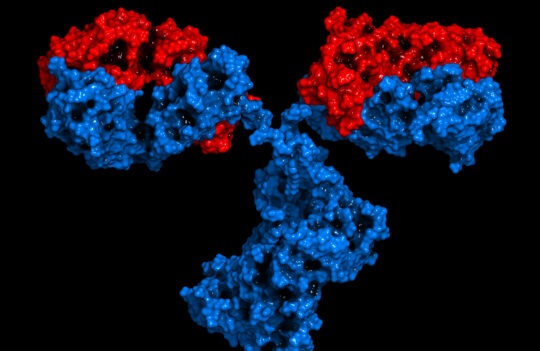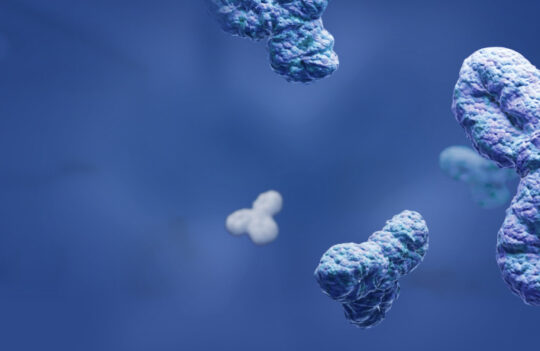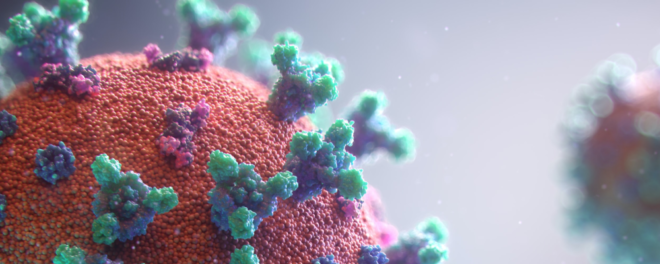 Customers success stories
Customers success stories
Pioneering the Development of Therapeutic Antibodies for Alzheimer’s Disease
Neurodegenerative diseases such as Alzheimer’s are among the most complex and devastating disorders of our time, affecting millions worldwide. Identifying targets and developing effective therapies remains a formidable challenge for researchers. To address this challenge, Isar Bioscience has selected ProteoGenix's expertise to explore promising new avenues in Alzheimer's research. Using ProteoGenix's unique platform of antibody library screening with phage display, the project successfully generated a fully human monoclonal antibody (mAb) targeting TREM-2, a receptor critical to the brain's immune response. This novel mAb, designed to modulate immune pathways involved in Alzheimer’s disease, has now been patented by Isar Bioscience, underlining the innovation achieved through ProteoGenix’s services. By combining world-class expertise with cutting-edge antibody development platforms, ProteoGenix and Isar Bioscience are advancing a promising candidate for a disease that demands innovative therapeutic solutions. Could this antibody open the door to new Alzheimer’s therapies? Here's a look at how this project came about and what it means for the future of neurodegenerative disease treatment.
Breaking New Ground in Alzheimer’s Research
Alzheimer’s disease presents an intricate scientific challenge, with its complex pathology and profound effects on cognition. Central to its pathology is the TREM-2 receptor (Triggering Receptor Expressed on Myeloid cells 2), a critical element of the brain’s immune signaling network. TREM-2 activates microglia, the primary immune cells in the central nervous system, which are responsible for clearing neurotoxic proteins and cellular debris. In healthy brain tissue, TREM-2’s activation is protective, promoting immune responses that preserve neural integrity. However, in Alzheimer’s disease, dysfunction of TREM-2 is associated with the accumulation of pathological protein aggregates and inflammatory signaling cascades that contribute to disease progression. Consequently, therapeutic strategies aimed at restoring or enhancing TREM-2 function have emerged as potential interventions to slow or halt the progression of Alzheimer’s disease.
With this goal in mind, Isar Bioscience chose ProteoGenix to develop an antibody with high specificity for the extracellular domain of TREM-2, aiming to establish a novel therapeutic pathway for Alzheimer’s disease. Chosen for its expertise in phage display technology and antibody production, ProteoGenix provided critical support at two key stages of development: initial high-throughput screening and efficient antibody production.
Here is how ProteoGenix’s capabilities have advanced this promising research:
High-Throughput Screening With Liab-SFMAX™ With Phage Display :
ProteoGenix leveraged its LiAb-SFMAX™ library, a highly diverse repository of naive human antibodies, to identify antibody candidates targeting the extracellular domain of TREM-2.
The high diversity of this library maximizes the likelihood of identifying high-affinity binders. Through rigorous high-throughput screening, ProteoGenix isolated 5 candidate antibodies with high specificity and binding affinity.
Antibody Production Using the XtenCHO™ System:
The 5 high-affinity candidates identified were then expressed using ProteoGenix’s proprietary XtenCHO™ expression system. This expression system is specifically designed for high-yield, low endotoxin antibody production at the gram scale.
The XtenCHO™ system enabled the efficient production of highly purified antibodies, facilitating the progression from discovery to production with remarkable speed.
The Power of LiAb-SFMAX™: Diversity and Efficiency in Antibody Development
ProteoGenix has developed a diverse portfolio of naive libraries specifically designed for therapeutic antibody discovery using phage display. The diversity of the libraries provides a robust foundation for high-affinity antibody screening, where binders are selected for specificity and strength of interaction with the target protein through a multi-step “panning” process.
For this project, ProteoGenix used its naive LiAb-SFMAX™ library. This library is a cornerstone of ProteoGenix’s capabilities, providing a uniquely comprehensive human antibody repertoire specifically designed for rapid, effective antibody discovery.
- Versatile Formats: In both scFv and Fab formats.
- Diverse Genetic Pool: With sequences from 368 donors from five different ethnic groups, the library encompasses a vast genetic diversity, ensuring an extensive pool of antibody variants capable of binding to a broad range of human antigens.
- Exceptional Size: With 5.37 x 10¹⁰ unique clones, this extensive library of human antibodies provides a high probability of rapidly identifying high-affinity binders.
- No Further Humanization Required: LiAb-SFMAX™ antibodies are fully human from the start, eliminating the need for additional humanization steps. This advantage saves significant time, effort, and cost, enabling a faster transition from discovery to clinical application.
A Service with Far-Reaching Impact
As the newly developed antibody moves toward clinical application, it reflects the power of strategic scientific innovation in therapeutic development. Together, ProteoGenix and Isar Bioscience are not only contributing to a promising therapeutic candidate but also setting a new standard for antibody engineering in the pursuit of effective treatments for neurodegenerative diseases. This work brings new hope to the field and illustrates how targeted antibody therapies may soon open new frontiers in the fight against Alzheimer’s disease and related disorders.




